Carbon Fiber Factory
From each customer conversation to every product we sell, we are committed to delivering excellence. LangJue Carbon Fiber Factory strives to be more than just a vendor—acting as your partner in custom carbon fiber fabrication, carbon fiber design, and custom carbon fiber manufacturing, bringing your most innovative projects to life. Let’s elevate your business and products together, setting new standards among carbon fiber molding company.
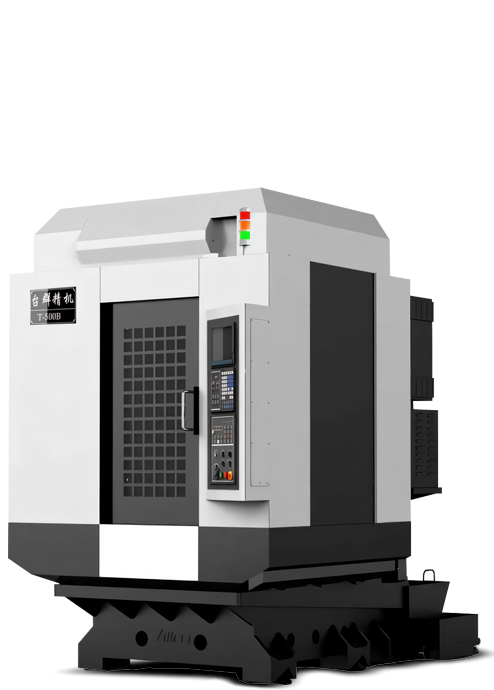
carbon fiber manufacturing company
Langjue mould
Shanghai LangJue mould is a professional production and processing company of mould, carbon fiber,cnc machining and other products, with a complete and scientific quality management system. Shanghai LangJue mould Co., Ltd. is recognized by the industry for its integrity, strength and product quality. Welcome friends from all walks of life to visit, guide and business negotiation.
LangJue custom carbon fiber
LangJue Carbon Fiber Factory
At LangJue carbon fiber factory, we specialize in providing tailor-made carbon fiber products that meet the unique needs of every client. From automotive parts to sports equipment, we offer lightweight, durable, and high-performance carbon fiber solutions.
Our advanced manufacturing processes ensure precision and quality, making us the go-to partner for custom carbon fiber needs in any industry.
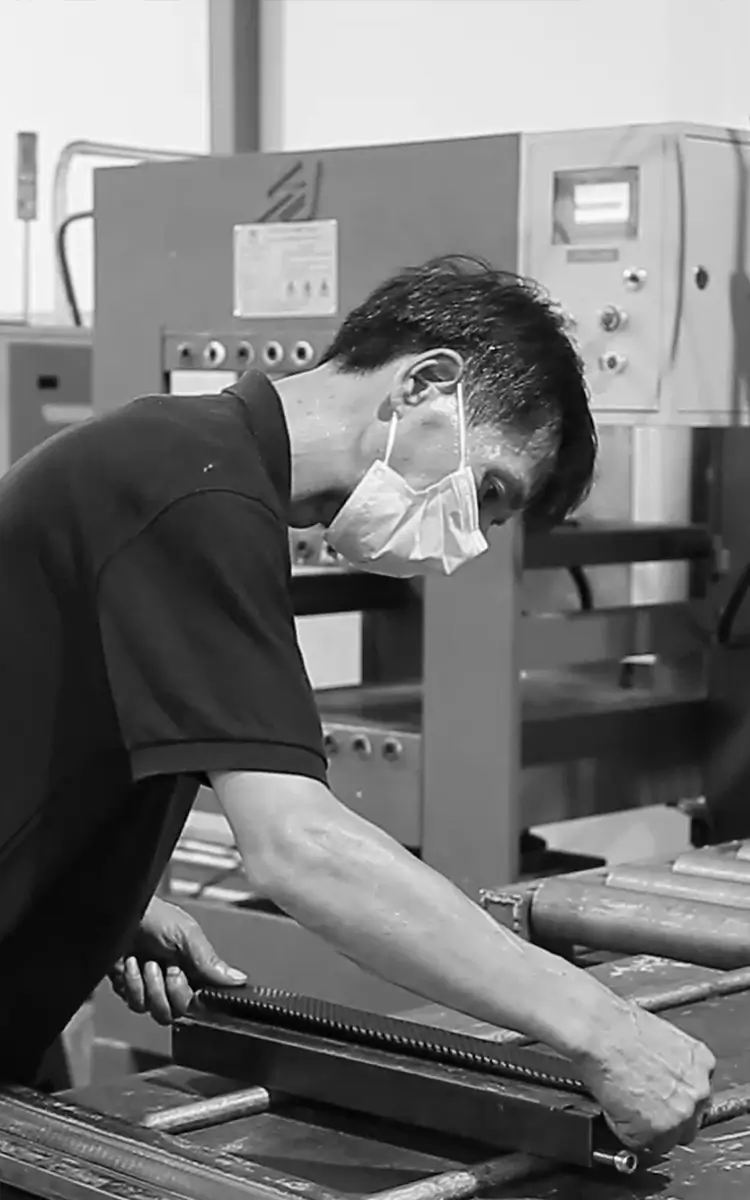
LJ Professional Customization
WHY Choose LangJue Carbon Fiber Factory
What a bad supplier often does, we would never do.
They mute
- We tell
When questions arise, bad suppliers go silent, leaving you in uncertainty. At LangJue Carbon Fiber, we maintain open and transparent communication, ensuring all your queries are answered promptly and clearly.
They hide
- We show
Inferior suppliers obscure vital details, causing unnecessary confusion. We operate with full transparency, sharing processes, progress updates, and quality checks at every stage.
They debate
- We solve
Rather than solving issues, poor suppliers argue and shift responsibility. At LangJue Carbon Fiber, we address challenges head-on with practical solutions and a commitment to resolution.
They promise
- We proof
Unreliable suppliers make hollow promises that they rarely fulfill. LangJue Carbon Fiber delivers on its commitments with tangible results and proven performance. We back our words with measurable action.
Upload Your CAD File
To begin, provide your contact details and upload the CAD file of your design. This allows us to create a detailed 3D model of the part or prototype you're looking to produce.
Receive a Quote & Design Review
Within 12 hours, we’ll send you a detailed quote along with Design for Manufacturability (DFM) feedback. This ensures the feasibility of your project and gives you a clear idea of the costs involved.
Confirm Your Order & Begin Production
Once you approve the quote and design, we’ll proceed with the production of your carbon fiber parts.
Shipping & Delivery
Your project enters our manufacturing queue the morning after we receive your approval. On average, custom orders ship within 10-15 business days. In-stock products and samples ship within 48 hours.
Just 4 Steps
Quotation Process
From detailed consultation to final delivery, we make custom parts orders simple and easy. We pride ourselves on providing exceptional customer service by anticipating your needs, offering customized solutions and on-time delivery.
LJ Carbon Fiber Factory
Carbon Fiber Design Process
LangJue custom carbon fiber design process begins with understanding your specific needs. We collaborate closely with you to develop solutions, ensuring the design is optimized for strength, durability, and performance. Through advanced CAD modeling and engineering analysis for high-quality production.

Requirements Gathering
This initial step involves understanding the client’s specific needs and expectations. We collect detailed information on carbon fiber design specifications, functionality, weight, strength, and appearance. Clear communication ensures our team fully grasps the project’s purpose, guiding the design process to achieve desired outcomes.
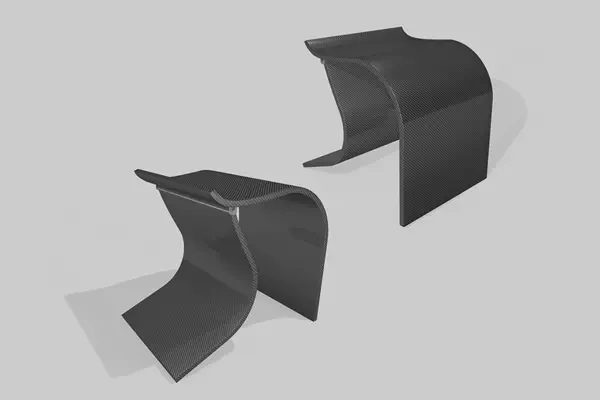
Feasibility Study
At this stage, we evaluate technical, economic, and material feasibility. Our engineers assess whether the concept can be realized efficiently while meeting performance goals. We consider factors such as material availability, manufacturing techniques, and cost-effectiveness to confirm the project’s viability.
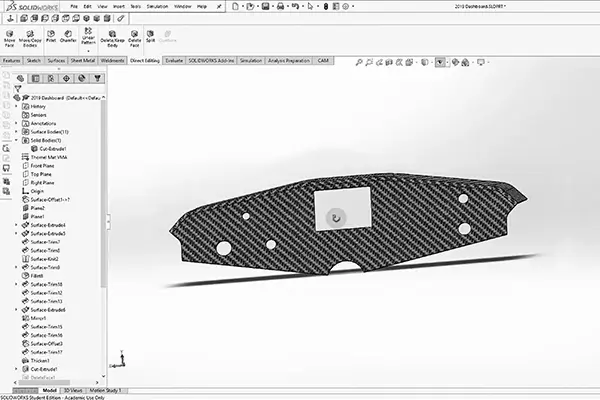
Modeling
Our team creates precise 3D models of the product using advanced design software. These models serve as virtual blueprints, enabling detailed visualization of the structure, dimensions, and key features. Accurate modeling lays the groundwork for subsequent analysis and production.
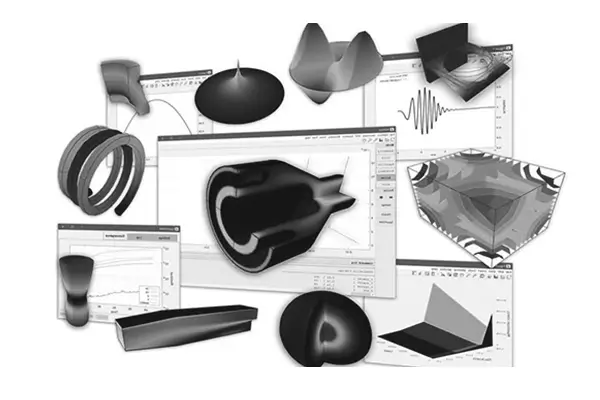
Simulation and Analysis
The 3D models are subjected to virtual simulations to test carbon fiber design structural integrity, performance, and durability under various conditions. Stress, thermal, and mechanical analyses help predict product behavior, allowing us to identify potential improvements early.
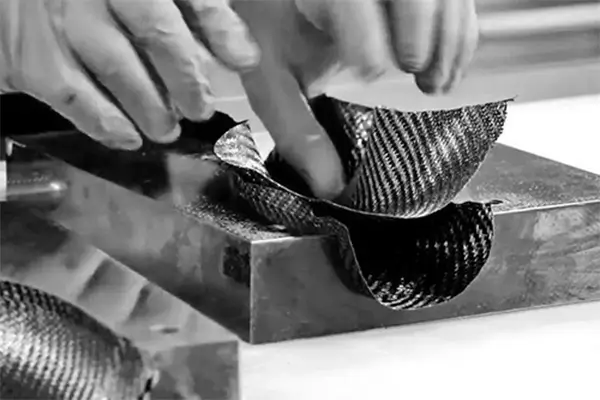
Prototype Development
Using the finalized design, we create a physical prototype to evaluate the real-world application. This prototype serves as a tangible representation, providing valuable insights into the design’s practicality and functionality before mass production.
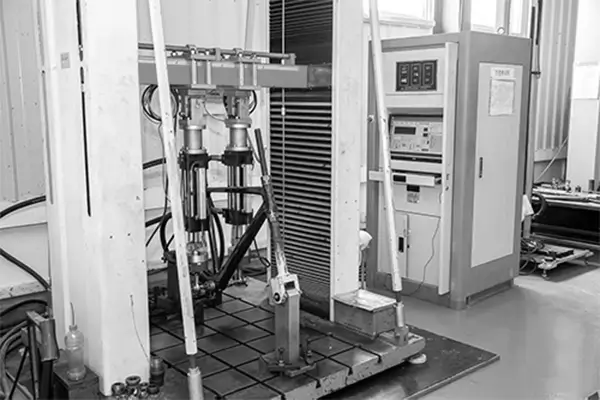
Testing and Validation
The prototype undergoes comprehensive testing to ensure it meets all requirements. This includes strength, durability, and performance checks, as well as verifying compliance with industry standards. Any deviations are addressed to confirm the design’s reliability.
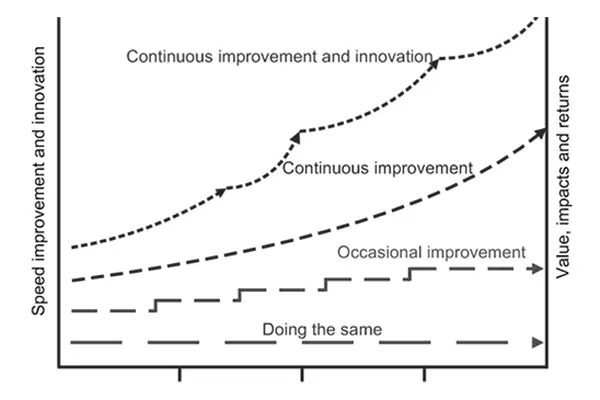
Refinement
Based on feedback from testing, the design is refined to enhance performance, efficiency, or aesthetics. This iterative process ensures the final product achieves optimal results, resolving any shortcomings identified in earlier stages.
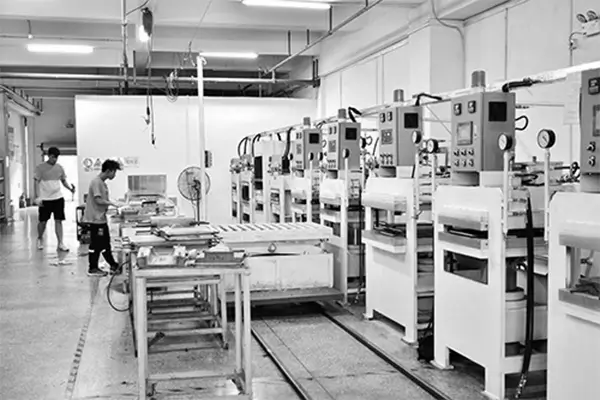
Production Planning
With the design finalized, we develop a detailed production plan. This includes defining material requirements, process flows, and quality checkpoints. Proper planning ensures efficient manufacturing, consistent quality, and on-time delivery of the finished product.
LJ Carbon Fiber Factory
Carbon Fiber Production Process
Once the design is finalized, our production process begins. Utilize advanced machines and proven techniques to transform designs into high-performance carbon fiber products. Every step of the process is carefully monitored to ensure the product meets strict quality standards and exceeds your expectations.
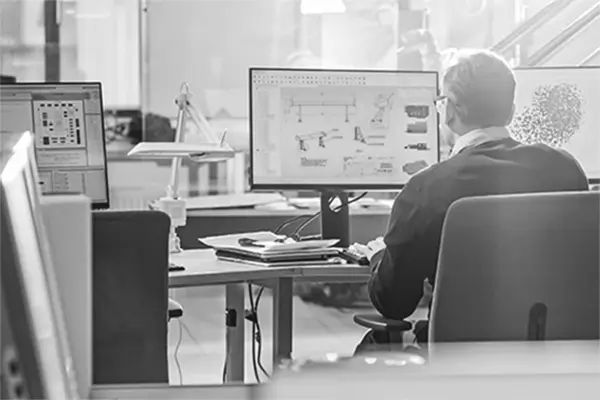
Design and Engineering
This stage involves transforming ideas into tangible carbon fiber design through advanced engineering. Our team evaluates client requirements, creates precise 3D models, and determines optimal structural layouts. Every detail is analyzed to ensure strength, performance, and aesthetic appeal, laying the foundation for a superior product.
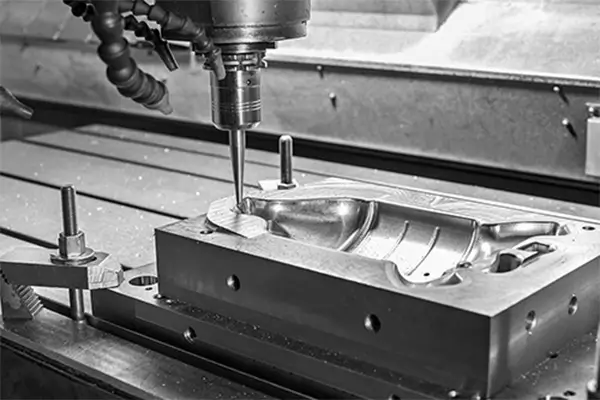
Mold Preparation
High-quality molds are essential for shaping carbon fiber products. We craft molds using precise techniques, ensuring they are smooth, durable, and suitable for repeated use. Proper mold preparation guarantees accurate product dimensions and flawless surfaces.
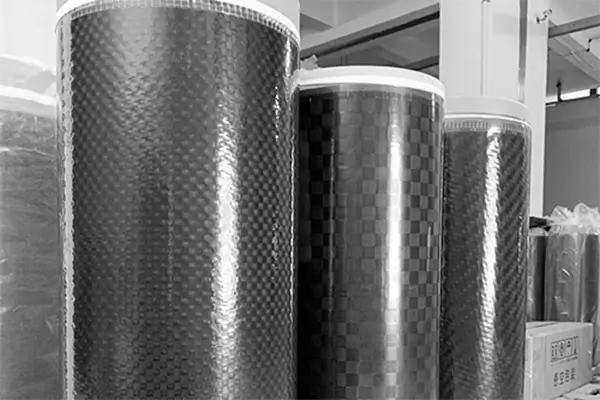
Material Preparation
Only premium-grade carbon fiber materials are selected to ensure top performance. These materials are pre-inspected and prepared to meet the specifications of each project, setting the stage for reliability and durability.
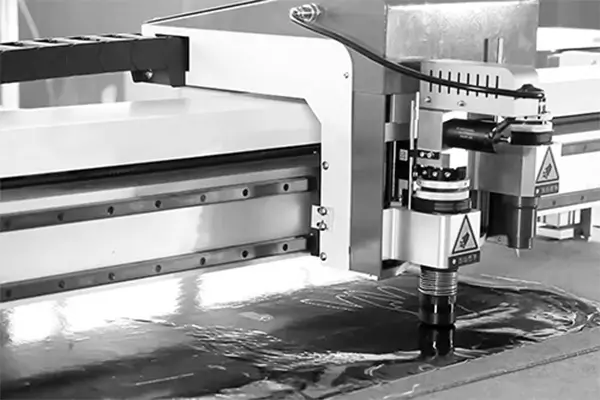
Cutting Prepreg
Prepreg sheets (pre-impregnated carbon fiber) are meticulously cut to the required size and shape. Using precision tools, this step ensures minimal waste and uniformity, preparing the materials for perfect alignment during layup.
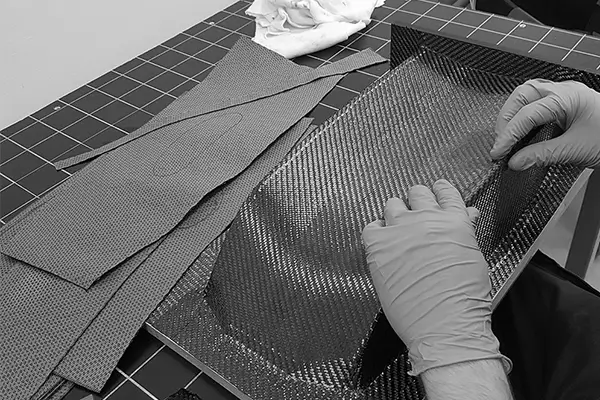
Layup
In this step, layers of carbon fiber are strategically arranged in the mold according to design specifications. Proper layering is critical for achieving desired mechanical properties and structural integrity in the final product.
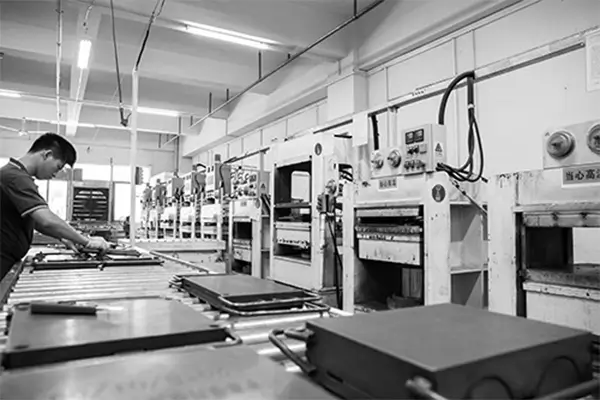
Forming
Under controlled heat and pressure, the layered material is cured and formed into its intended shape. This process bonds the fibers and resin, creating a strong and lightweight component.
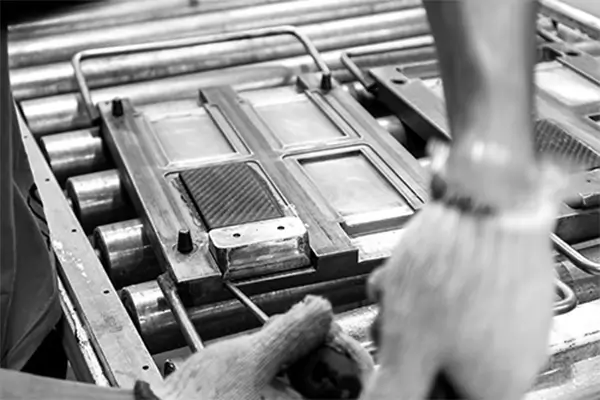
Demolding
After forming, the product is carefully removed from the mold. Special care is taken to prevent any damage or deformation, preserving the precision achieved in earlier steps.
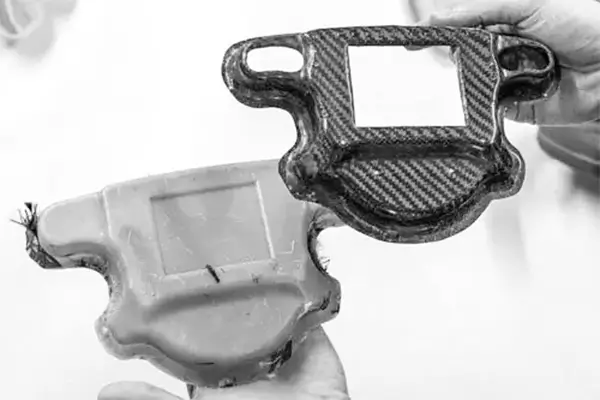
Blank Forming Check
A thorough inspection is conducted to verify the dimensions, structure, and overall quality of the freshly formed blank. This ensures there are no defects before proceeding to the next stage.
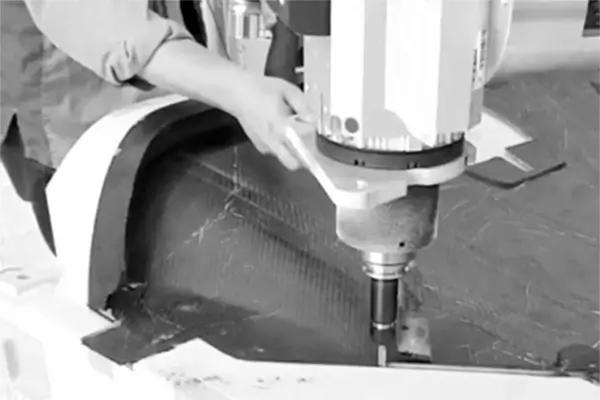
Trimming and Machining
The product edges are trimmed, and machining is performed to achieve precise shapes and finishes. This process ensures that the component meets exact specifications for its intended application.

Sanding
Sanding smoothens the product’s surface, preparing it for a flawless paint finish. It removes imperfections and creates an even texture, enhancing the visual and tactile quality.
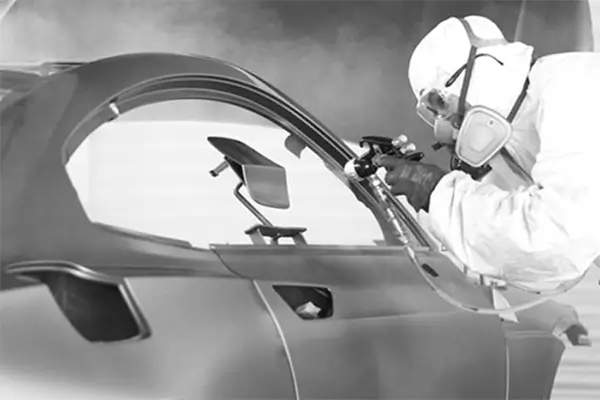
Painting
This step adds protective coatings and a customized appearance. Advanced techniques and durable paints ensure the final product withstands environmental factors while looking polished and professional.
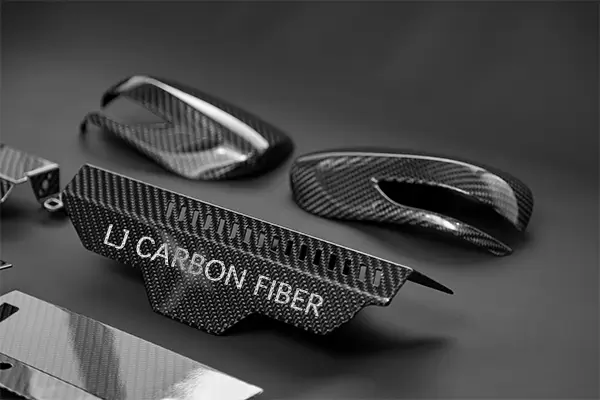
Printing
Logos, graphics, or custom designs are applied to the product using high-precision printing techniques. This step enhances branding and adds unique aesthetic appeal.
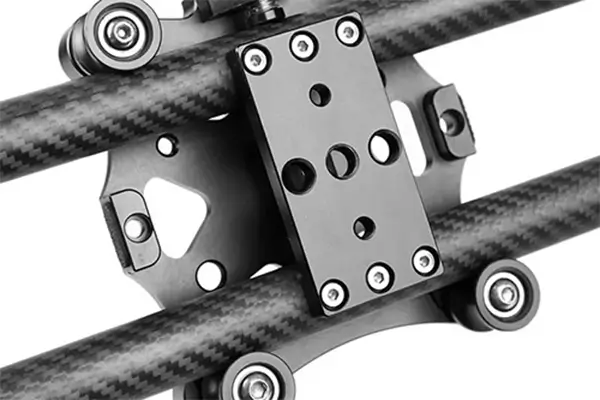
Assembling
Components are meticulously assembled into a finished product. Our team ensures seamless integration of parts for optimal functionality, ensuring the final product is ready for use.
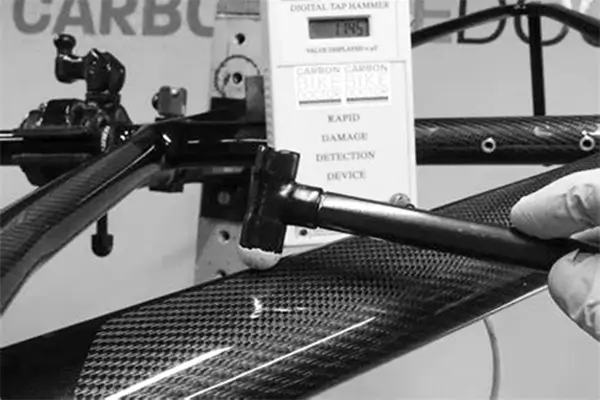
Inspection and QC
A rigorous quality check is performed to detect any defects or inconsistencies. Our strict inspection protocols guarantee that only products meeting our high standards reach the next phase.
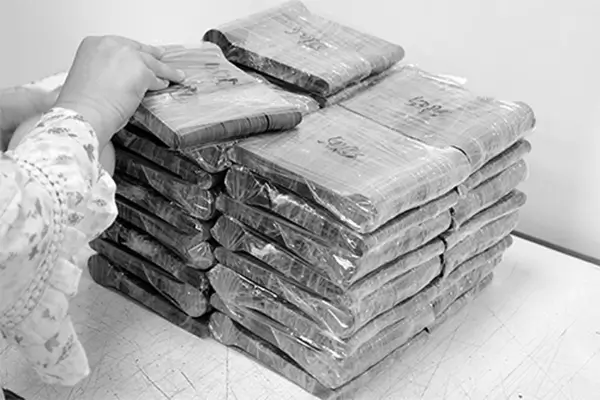
Packaging
Products are securely packaged to protect them during transit. Special care is taken to ensure durability and safety, guaranteeing that customers receive items in perfect condition.
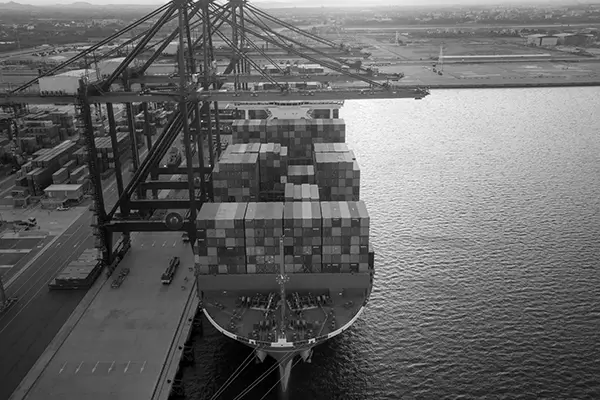
Dispatch Transportation
Efficient logistics ensure timely delivery of products to clients. We coordinate transportation details to guarantee smooth shipping and secure handling.

Documentation
Accurate documentation, including specifications, warranties, and user instructions, is provided with each shipment. This ensures clear communication and supports seamless post-sale processes.

Usage Feedback
Customer feedback is collected and analyzed to enhance product quality and performance. This step helps us stay aligned with user needs and drives continuous improvement.
LJ Carbon Fiber Factory
Carbon Fiber Quality control Process
Quality is at the core of everything we do. Our comprehensive quality control process includes multiple stages of inspection and testing to guarantee that every custom carbon fiber product meets the highest industry standards. From material testing to visual inspections, we ensure that each product is durable, precise, and ready to perform in its intended application.

Incoming Material Inspection
This critical step ensures that all raw materials meet quality standards before production begins. Materials are thoroughly tested for physical and chemical properties, such as strength, weight, and resin content. By verifying the quality of incoming supplies, we ensure consistency and reliability in the finished product.

Environmental Control
Maintaining a controlled environment is essential for carbon fiber production. We monitor temperature, humidity, and cleanliness in the production area to prevent contamination and ensure optimal curing. This step guarantees the material properties remain intact throughout manufacturing.
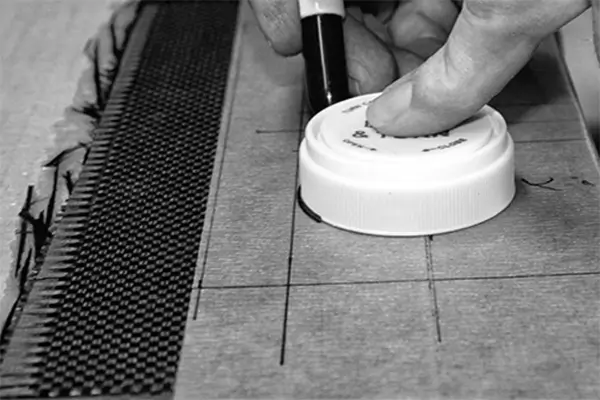
Layup Inspection
During this stage, each layer of carbon fiber is carefully checked to ensure precise alignment and correct placement within the mold. Proper layup ensures structural integrity and consistent performance, eliminating risks of defects later in the process.

Curing Process Monitoring
We closely monitor the curing process to ensure the material reaches its intended strength and durability. Heat, pressure, and timing are precisely controlled, with real-time data collection to identify any abnormalities and prevent product inconsistencies.
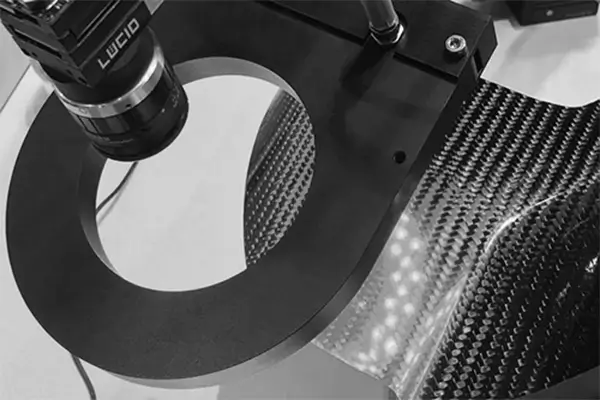
Surface Finish Inspection
After the product is removed from the mold, our team inspects the surface for imperfections such as air bubbles, cracks, or uneven textures. A flawless surface is essential for achieving both aesthetic appeal and superior mechanical performance.
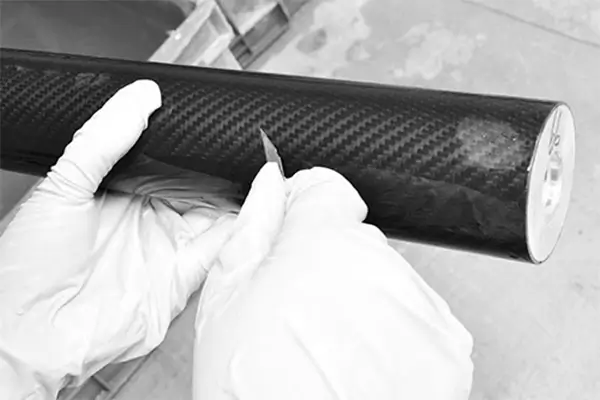
Dimensional Inspection
Using advanced measurement tools, we verify that the product meets precise dimensional specifications. This ensures compatibility with assembly processes and adherence to customer requirements, guaranteeing a perfect fit for its intended application.
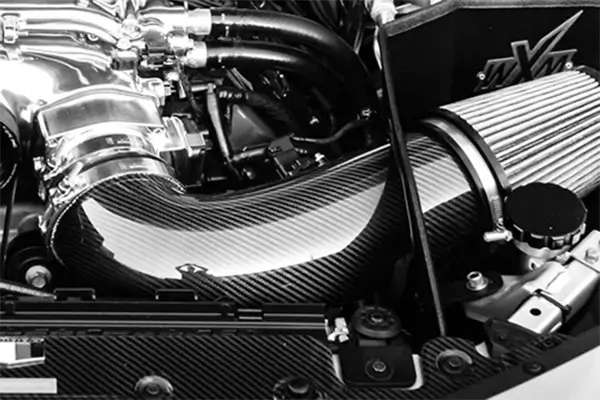
Functional Testing
Products are tested under real-world conditions to verify their performance, strength, and functionality. This step includes stress tests, load-bearing assessments, and environmental simulations to confirm the product can withstand its intended use.
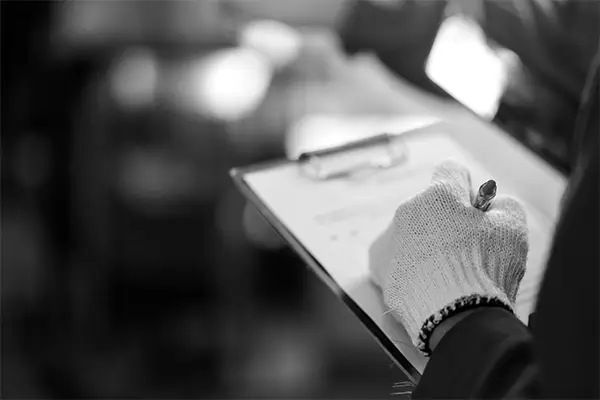
Final Quality Audit
Before shipment, the product undergoes a comprehensive quality audit. This final check includes a review of inspection reports, functional performance, and visual standards. Only products that meet our strict quality criteria are approved for delivery to customers.
LJ Carbon Fiber Factory
Carbon Fiber Factory Main Crafts
Our professional equipment provides complete solutions for carbon fiber customization, ensuring high precision, efficiency, and cost-effectiveness.
From design to production, we meet strict quality standards, addressing complex shapes and performance needs.
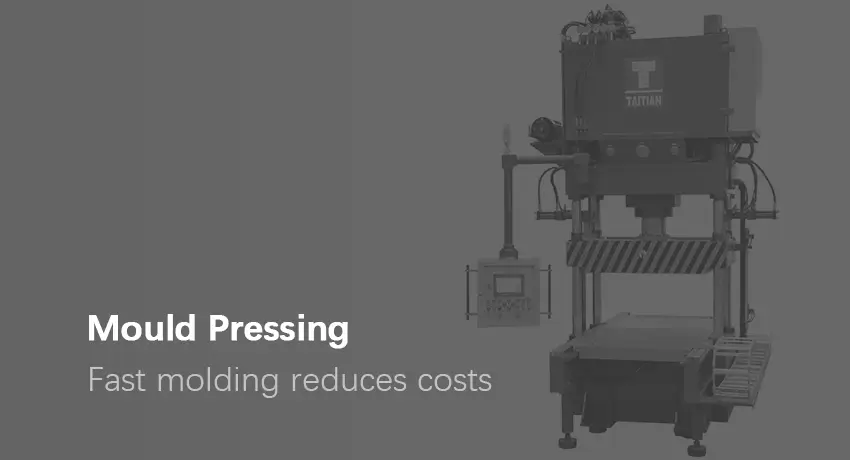
The method of adding a certain amount of prepreg into the metal pair mold andcuring by heating and pressure. The main advantages of molding molding processare high production efficiency, easy to achieve professional and automatic productionand product size precision is high, good repeatability, and can be formed acomplex structure of products, can be mass production, the price is relatively low
Autoclave Moulding
Enhances strength & optimizes durability
The composite billet composed of single layer prepreg material is placed in a hotpressing tank and the curing process is completed under a certain temperatureand pressure. Autoclave is a special pressure vessel which can withstand andcontrol a certain range of temperature and pressure.
Hand Lay-up Process
Meets custom design requirements
The solidification process of hand paste process can be carried out at roomtemperature, without special mechanical equipment, low cost, not limited by theshape and size of the products,easy to operate, especially suitable for theproduction of small number of products, complex modeling
Vacuum Diversion
Increases precision & reduces material waste
The carbon fiber reinforced material and resin are manually laid into the prefabricatedmolding mold in accordance with the fiber direction and order designed by theproduct itself. After the predetermined layer thickness is realized, the product iscovered with a vacuum bag, pressurized by vacuum pumping, and cured by heatingAfter that, the carbon fiber products are demoulded and processed by theappearance. Compared with the hand-laying process, the compactness of theproduct is enhanced in the pressure curing process and the porosity is reduced toimprove the quality of the product.
CNC Machining
High-precision structures
CNC (Computer Numerical Control) machining is a precise and efficient method used to cut, drill, and shape carbon fiber products. Utilizing advanced computerized equipment, this process ensures high accuracy and consistency, achieving even the most complex designs with minimal waste. CNC machining is ideal for creating intricate parts and ensuring precise dimensions, making it essential for industries that demand exact specifications, such as aerospace, automotive, and sports equipment manufacturing.
Industrial oven
Even curing & quality stability
The industrial oven is a critical tool in carbon fiber production, used for controlled curing and post-curing processes. By maintaining precise temperature conditions, it ensures that resin and fiber bonding is completed to enhance strength and durability. This step is vital for stabilizing the structure, eliminating internal stresses, and achieving consistent quality. Industrial ovens are suitable for both large-scale and specialized production, playing a key role in delivering reliable and high-performance carbon fiber products.